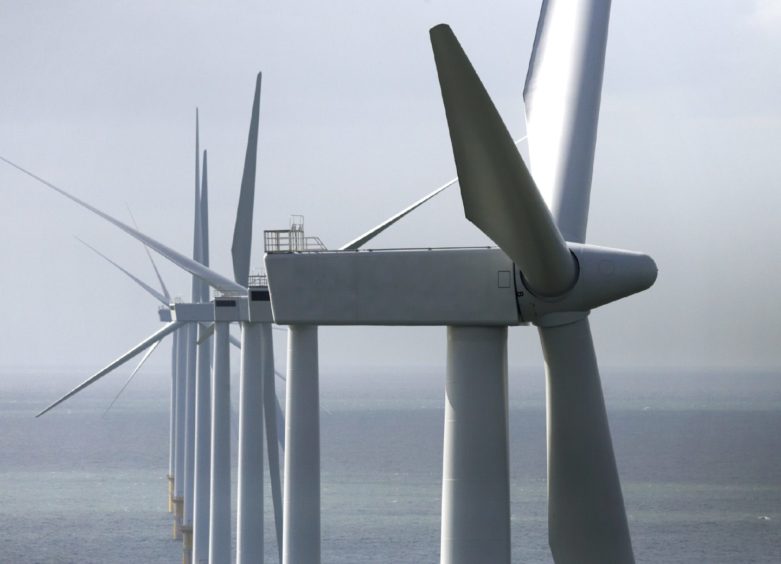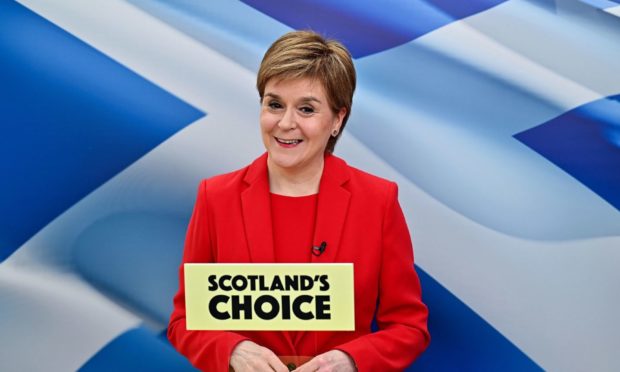The last year has been tough for all of us.
Over that period, I have fully dedicated myself to steering Scotland through the global pandemic.
In serious times, people rightly demand serious leadership – to help our economy and our public services to recover, to tackle deep-seated inequalities and the climate emergency.
The SNP’s manifesto for this election is truly transformational in its ambition – and unashamedly optimistic for Scotland’s future.
It includes plans to remobilise our NHS, with an increase in frontline spending of at least 20% – meaning £2.5bn in additional investment to help increase capacity and enhance our NHS for the future.
National Care Service
And it includes plans to deliver a National Care Service – which will benefit both those providing care and those they care for – and abolish non-residential social care charges for people of all ages, as well as introducing a National Wage for care staff.
We’ll also restore fully the principle of a free NHS by working with dentists to reform funding and remove NHS dental charges.
For the next generation, it includes plans to deliver £1 billion of investment to help close the attainment gap.
We’ll build on our new Scottish Child Payment, described as a ‘game-changer’ in the battle against child poverty, by increasing the age threshold to every school-age child in receipt of free school meals, and double the payments themselves to £20 a week over the parliament.
We’ll support ideas that can transform how we live like a minimum income guarantee and pilot four-day working.
We’ll take the next steps in our childcare revolution by building a year-round system for wraparound childcare, with the lowest-income families paying nothing. We will also expand free early years education to all one and two year olds from low-income households.
We’ll provide free breakfast and lunches for all primary school children, year-round – as well as providing every school child with a laptop or tablet and ensure they have an internet connection.
We will deliver 100,000 more affordable houses over the next decade, providing homes for families and supporting 14,000 jobs a year.”
And as part of the next steps in our active travel revolution, we will provide a free bike to every child who couldn’t otherwise afford one.
These unprecedented investments will help every child get the best possible start in life – and to support teenagers and young adults at a time of unprecedented uncertainty, we are putting in place the Young Person’s Guarantee
This will ensure that every young person aged between 16 and 24 in Scotland has the opportunity to go to university or college, get a place on an apprenticeship, training or work experience programme, secure a job or participate in a formal volunteering programme.
We will invest an additional £500 million to support new, green jobs and re-skill people for the jobs of the future.
Our National Transition Training Fund will support workers whose jobs are at risk and provide opportunities for them to retrain.
We will invest over £33 billion in infrastructure projects over the next five years, supporting around 45,000 jobs.
We will deliver 100,000 more affordable houses over the next decade, providing homes for families and supporting 14,000 jobs a year.
All of our investments will have tackling the climate emergency at its heart. Scotland may be a relatively small country, but it can play – and is playing – a big part in global efforts to reduce emissions.
Green pledges
Unlike the Tories, who abandoned Scottish communities as they de-industrialised Scotland in the 1980s, we will commit to a Just Transition – working with trade unions, businesses and communities on plans for different sectors and communities.
With almost 100% of Scotland’s electricity coming from renewables, we’ll invest £1.6 billion to decarbonise the heating of our homes and other buildings, and £100m to develop Scotland’s vast potential in the hydrogen sector.

Alongside our active travel pledges, we’ll aim to reduce the use of cars by 20% by 2030, invest over £500 million in our bus network and will extend free bus travel to everyone under 22 years old.
And as we bring our railway back into public ownership – one of our key commitments at this election – we will work to decarbonise it too.
There is so much ambition in our manifesto – and the SNP will never place any limits on our ambitions for Scotland.
But it is the case that, for as long as key decisions about our lives are taken at Westminster, Scotland will be held back.
The Tories have forced Brexit on Scotland against our will – and it is having a disastrous effect on our economy and society.
They decide who gets to come to Scotland to work, they decide whether the NHS can be included in trade deals, they get to decide if they want to impinge on the powers of the Scottish Parliament, and they get to waste vast sums of our money on more nuclear warheads.
Scotland’s recovery must be in our hands – and when the immediate crisis has passed, the people of Scotland should get to choose our future, with the option of a better future for independence.
We have human and natural resources that most countries could only dream of – and as we look to our neighbouring countries like Ireland, Norway and Denmark, we must ask… why not Scotland?
If there is a majority for an independence referendum in the next parliament, there will be no democratic, electoral or moral justification for Boris Johnson or anyone else blocking a referendum.
Independence will only happen when a majority of people in Scotland vote for it – Scotland’s future must be Scotland’s choice.
By giving both votes to the SNP in this election, people can elect a first minister and a government which has a transformational vision for Scotland’s recovery, and the experience and leadership to deliver it.
Nicola Sturgeon is First Minister of Scotland and SNP candidate for Glasgow Southside.
